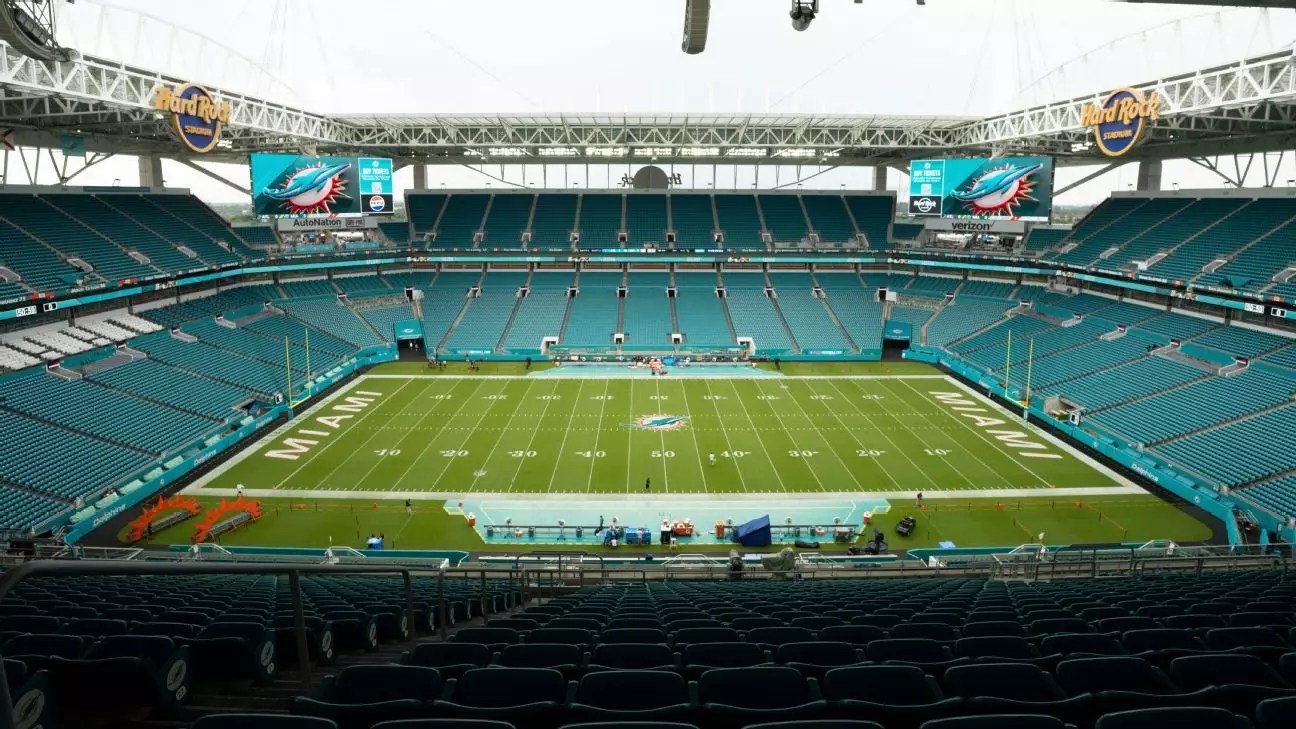LaLiga president Javier Tebas is gearing up for a bold initiative aimed at expanding the allure of Spanish football by hosting a league match in Miami next season. This aspiration hinges on the resolution of ongoing negotiations with the Spanish Football Federation (RFEF). Tebas’s original plan to bring a LaLiga game to hard Rock Stadium in Miami collapsed back in 2018. The proposed match, which would have featured Barcelona and Girona, faced significant resistance not only from the RFEF but also from FIFA. However, recent developments, particularly a lawsuit involving the Relevent Sports Group, have reignited hope for this transatlantic venture.
The complexities surrounding the organization of a LaLiga game in the U.S. cannot be understated. The fact that there is currently no elected president for the RFEF has created a vacuum that complicates negotiations and, ultimately, the prospects of staging a game in Miami. Tebas emphasized this point, stating, “We have to have an agreement with the federation in Spain. The federation is still in a significant void.” Such bureaucratic hurdles highlight a broader issue within sports governance, where administrative delays can stall groundbreaking initiatives.
At the forefront of this endeavor is the Relevent Sports Group, which has taken legal action to promote the hosting of international football matches in the U.S. Their lawsuit against FIFA, initiated in 2019, arose after the global governing body obstructed plans to bring the aforementioned match to Miami. A key turning point occurred earlier this year when Relevent and FIFA reached an agreement to drop FIFA from the lawsuit, hinting that FIFA may now be more amenable to such matches being held in the future.
This shift presents a unique window of opportunity for LaLiga to engage with its American fan base more directly. It reflects a growing trend of sports leagues looking to tap into the lucrative North American market, where soccer’s popularity has surged in recent years. For LaLiga, this geographic expansion could pave the way for increased revenue and market presence, especially as soccer continues to grow among diverse audiences.
However, Tebas’s ambitions come at a precarious moment in the football calendar. Within the background of this initiative lies a climate of tension, notably illustrated by the potential for player strikes due to rampant fixture congestion. Recently, Spain and Manchester City midfielder Rodri highlighted the precarious state of the fixture schedule, suggesting that players are nearing a boiling point. This unrest is compounded by the upcoming expanded Club World Cup, set to take place in the U.S. next summer, which has further intensified player dissatisfaction.
The president of the Spanish Players’ Union (AFE), David Aganzo, has indicated that a strike could be considered if the situation does not improve. This context underscores the mounting pressure on both players and league administrators alike. Tebas has added his voice to this discourse, criticizing the Club World Cup and conceding that the gripes of players regarding fixture congestion are valid. Such a concerted push for player rights may complicate the union’s position on international league matches like the one proposed for Miami.
Despite potential conflicts that could arise from his advocacy for a Miami match, Tebas asserts that supporting this initiative does not contradict his position regarding fixture congestion. His nuanced stance reflects a broader dilemma inherent in sports administration: the need to balance commercial aspirations with player welfare. As players voice their frustrations regarding increasing demands and fixture volume, the potential clash between league ambitions and player rights creates a complicated landscape.
While the vision of a LaLiga game in Miami resonates with ambitions to broaden the league’s appeal, it arrives at a time rife with complexities. The upcoming negotiations with the RFEF, the implications of legal agreements with FIFA, and the mounting scrutiny over fixture congestion represent significant hurdles that must be overcome. Tebas’s aspirations call for not only logistical finesse but also a commitment to collaboratively address player concerns as stakeholders work to redefine the future of LaLiga in an increasingly globalized sports landscape.


Leave a Reply